
| Essential information for an informed debate about cannabis policy. |
|
|
Bill S-10 "Penalties for organized drug crime act" - Information Resources
Supporters of Bill S-10 and Mandatory Minimum Sentencing
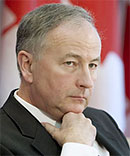 |
Justice Minister Rob Nicholson
|
 |
Senator John D. Wallace As to the honourable senator's question of where the interest of organized crime begins and where to slot in the beginning point in production to gear to that, that could be an endless debate. The point is that there has to be a beginning — the beginning point of six plants was one that was not taken lightly — and there is no question that the focus of this bill is to deal with serious drug crime. It is the government's view that production from six plants and up does constitute serious drug crime.
|
 |
John Martin - Criminologist at the University of the Fraser Valley Your choice: pay now or later The proposal has been around in one form or another since 2008. It's known as Bill S-10 and as usual, critics are howling and screaming in opposition to it. Thankfully, it appears the general public has figured it out and is solidly behind the government's anti-crime measures - as evidenced by the Tories running away with the lead in one poll after another. It's really quite simple: we can invest in public safety now and take select offenders out of circulation so they can't commit more crimes. |
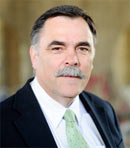 |
Darryl Plecas - RCMP University Research Chair in Crime Reduction & Director, Centre for Criminal Justice Research School of Criminology and Criminal Justice, University of the Fraser Valley (bio) Generally speaking, I am a strong supporter of Bill C-15*. I have concerns about a few things, but the bill is certainly better than what we have now. My biggest concern is that it simply does not go far enough. We are still tinkering with something and digging ourselves into a big hole (source)
|
 |
Ed Fast - Conservative MP (Abbotsford, BC) Ed Fast - Liberals reverse gears on drug crime bill |
 |
Rick Norlock - Conservative MP (Northumberland-Quinte West) Northumberland-Quinte West MP Rick Norlock said he's confident a majority of Canadians support his government's efforts to get tough on drug traffickers by making minimum sentences mandatory. Bill S-10 targets traffickers who sell drugs to youth, are linked to organized crime, employ weapons or violence, and put others at risk. "I think the preponderance of people would say that you just can't give somebody a slap on the wrist for that, and that there should be a mandatory minimum sentence," Mr. Norlock said. (source) |
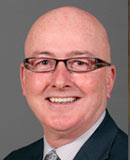 |
David Sweet - Conservative MP (Ancaster - Dundas - Flamborough - Westdale, ON) Our message is clear: if you sell or produce drugs, you’ll pay with jail time. Also important to note, we have no intention of decriminalizing or legalizing marijuana. Specifically in regards to Bill S-10, this bill is targeted at drug traffickers, not the recreational user. We know that drugs are the currency of Organized Crime, and our Government will continue to crack down on crime and ensure the safety and security of our communities. Drug trafficking and drug production is without a doubt the most significant source of illicit money for organized crime groups. |
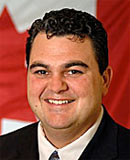 |
Dean Del Mastro - Conservative MP (Peterborough) |
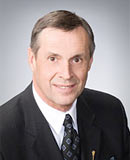 |
Don Morgan - Saskatchewan Attorney General Saskatchewan Attorney General Don Morgan says his province wholeheartedly supports the federal legislation but has not determined what the costs will be. |
 |
Andrew Swan - Manitoba Attorney General Manitoba Attorney General Andrew Swan says he too is supportive of the federal government's tough-on-crime agenda, though it could lead to more demand for legal aid. Swan says the government used to be an equal partner in funding the program. |
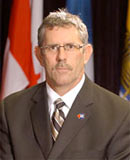 |
Charles Momy - President, Canadian Police Association (police union) "The drug trade is often linked with other serious criminal behaviours and social issues, including street gangs, organized crime, robberies and violent crime" states Charles Momy, President of the Canadian Police Association (CPA). "These amendments are focussed on the supply chain when serious offences occur. We are favourable to mandatory minimums as a means to strengthening the Controlled Drugs and Substances Act." (source - CPA media release) |
Also see: Opposition to Bill S-10 / Mandatory Minimum Sentencing
Conservative Opposition to Cannabis Law Reform
Don't believe the Conservative spin! |
